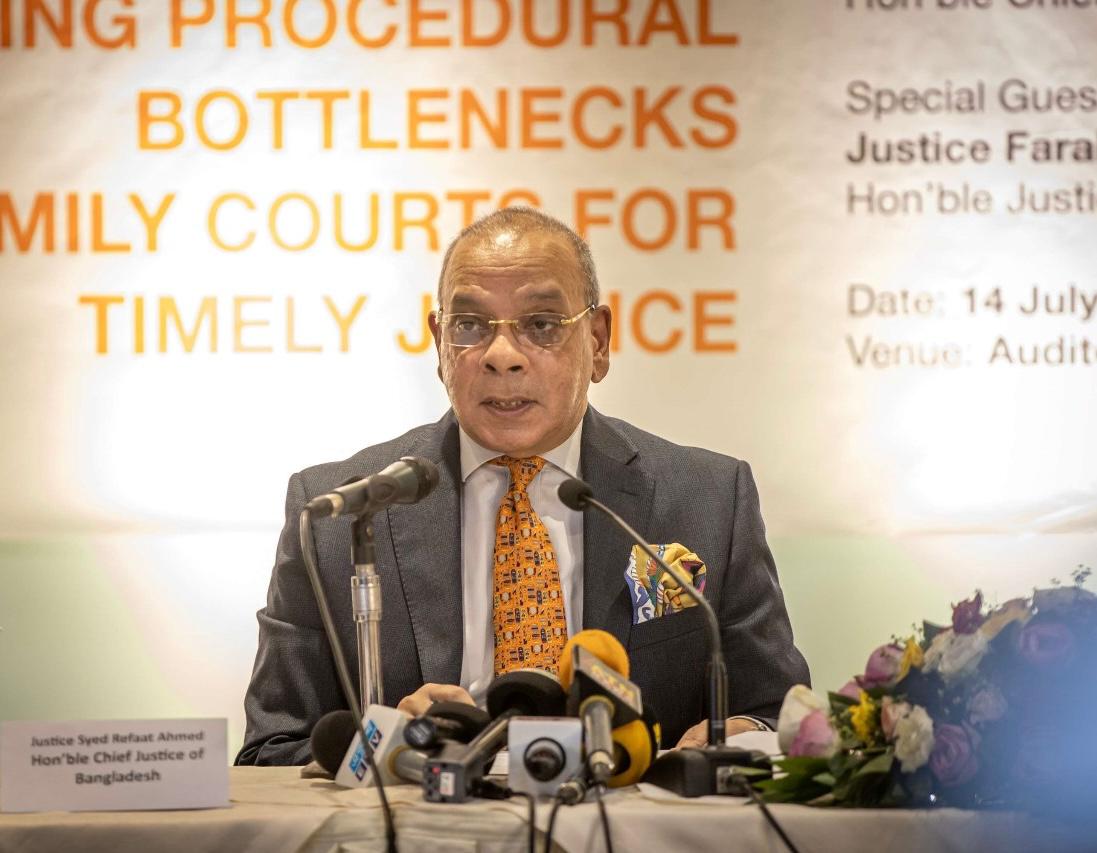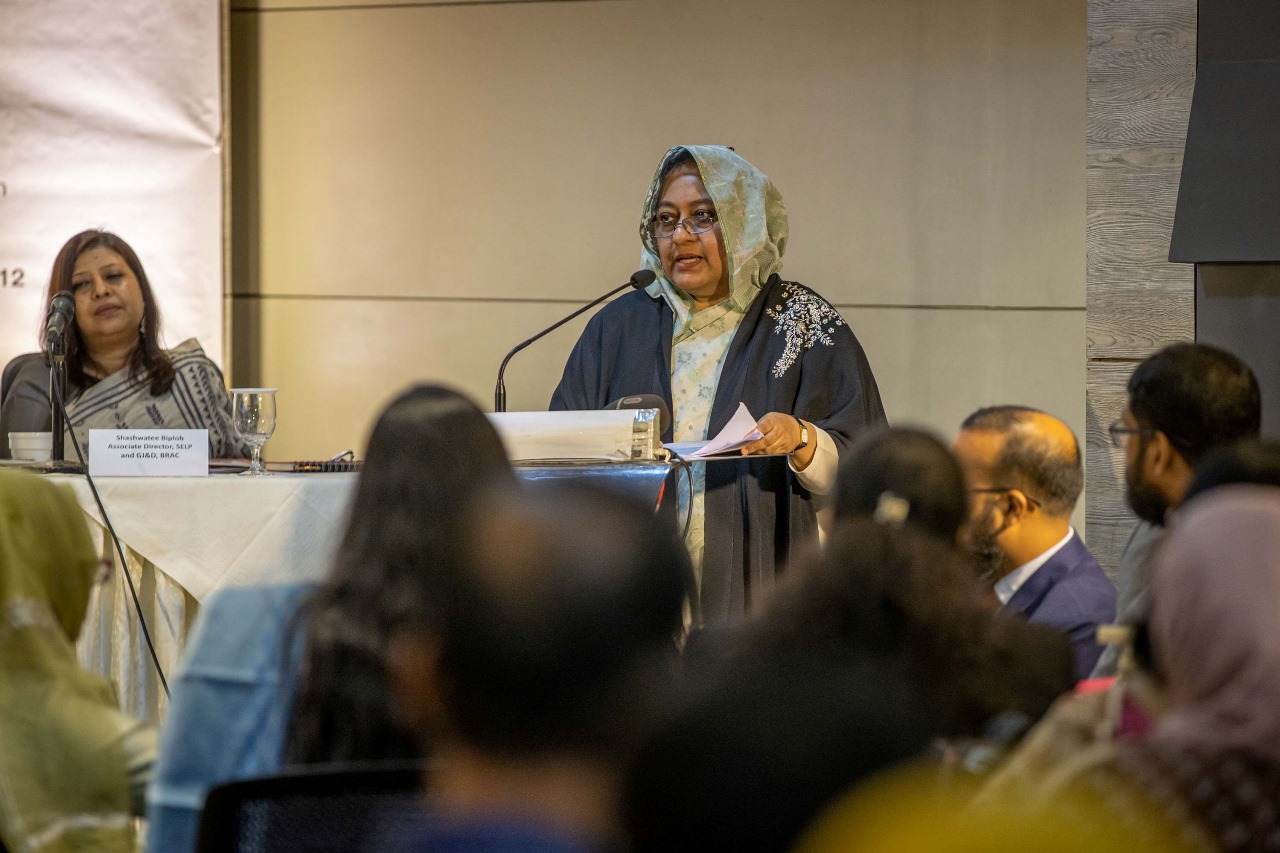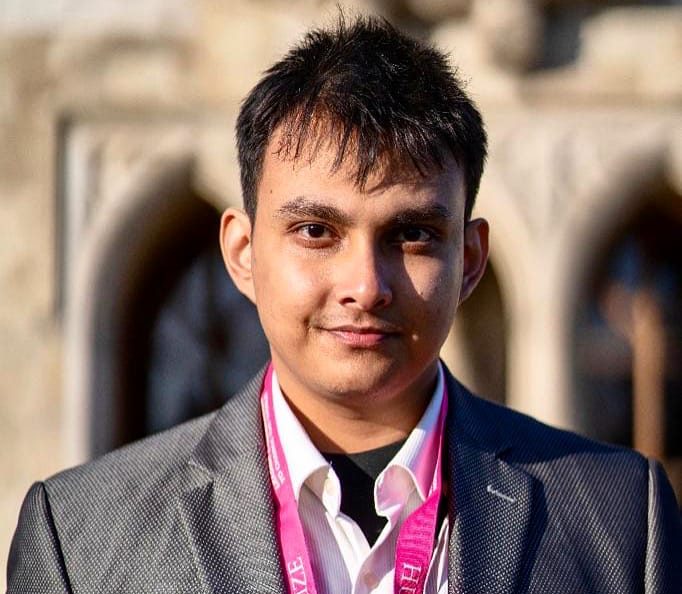Call by the Chief Justice to Remove Complexities in Family Courts

Bangladesh’s judiciary is advancing through wide‑ranging reforms to ensure efficiency, accountability and citizen‑friendly services. Honourable Chief Justice Syed Refaat Ahmed made this remark at a national workshop titled “Procedural Complexities in Family Courts: Timely Justice,” held at the BRAC Centre Auditorium and organised by BRAC’s Social Empowerment and Legal Protection (SELP) programme.
Keynote Address of the Chief Justice
The Chief Justice stated that recent legal reforms are not limited to modernisation; their main goal is to make justice easily accessible to citizens. A major change is the amendment of the Legal Aid Act, which now requires a mandatory mediation stage before a case is filed—encouraging compromise over conflict.

Challenges and Statistics in Family Courts
As of 31 March 2025, some 74,259 cases are pending in family courts, 5,034 of which are more than five years old. In the first quarter of 2025, 10,089 cases were disposed of. The Chief Justice credited this progress to the active roles of judges and lawyers and a shift from “process‑centred” to “people‑centred” thinking.
Procedural Reforms
Recent amendments to the Code of Civil Procedure have reduced procedural steps, added mechanisms to enforce judgments within the same case, and strictly limited the number of adjournment petitions. These changes are expected to reduce delays and complexity.

Digital Innovations
Following successful pilots of digital cause lists, adjournment tracking and SMS summons, preparations are under way to introduce tech‑based services in family courts as well. Digital summons linked to national ID numbers and a judicial support help‑desk will be launched soon.
Infrastructure and Administrative Independence
Outdated summons methods, unchecked adjournments, unstructured case management, lack of psychological support, and inadequate court‑building facilities have been identified as major obstacles. With BRAC’s help, hygienic, gender‑sensitive washrooms have been installed at the Supreme Court and will be extended to divisional and metropolitan courts. The Chief Justice stressed that full control over an independent administrative structure is essential for maintaining judicial effectiveness.
Remarks by Special Guests
Appellate Division Justice Farah Mahbub noted that justice in family courts is about healing, not victory, and that court processes must become more empathetic and swift. She praised the workshop as a catalyst for coordinated, sustainable action and thanked BRAC for bringing key stakeholders together.

BRAC’s Perspective
BRAC Executive Director Asif Saleh said that a just society cannot be built without realising women’s full potential. BRAC is working on multiple fronts—awareness‑raising, capacity‑building and policy support—to break harmful social practices.
Concluding Assessment
The workshop brought together policymakers, judges, government officials and seasoned lawyers. Recommendations from five regional consultations—attended by 117 judges and 10 lawyers from 51 districts—were reviewed, identifying delays in the summons process as a key obstacle. This marks an important step toward integrated reforms aimed at creating a swift, compassionate and citizen‑centred family court system.












